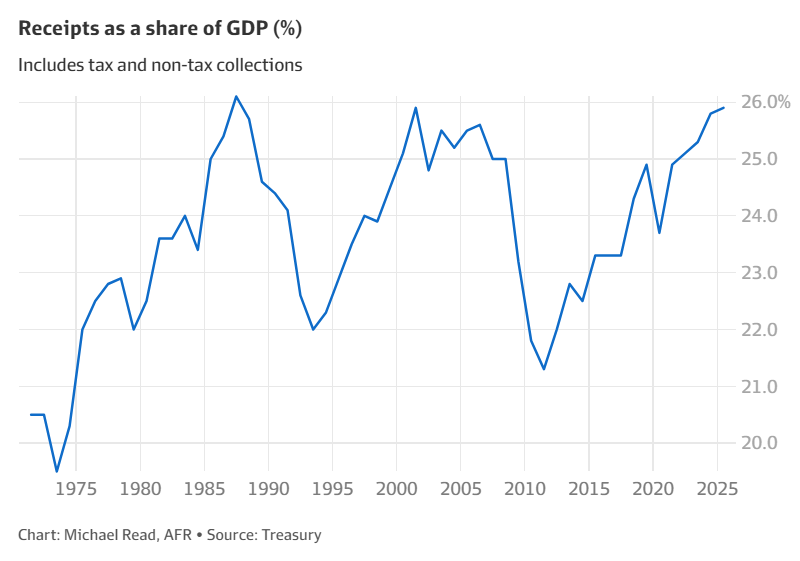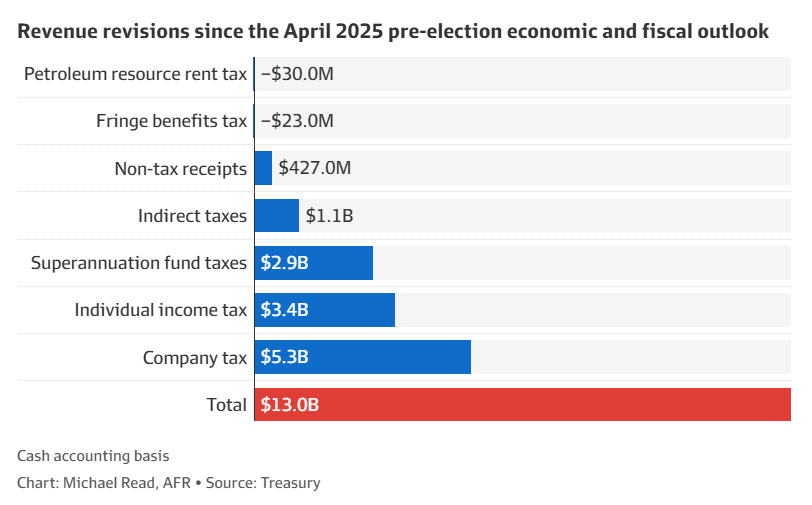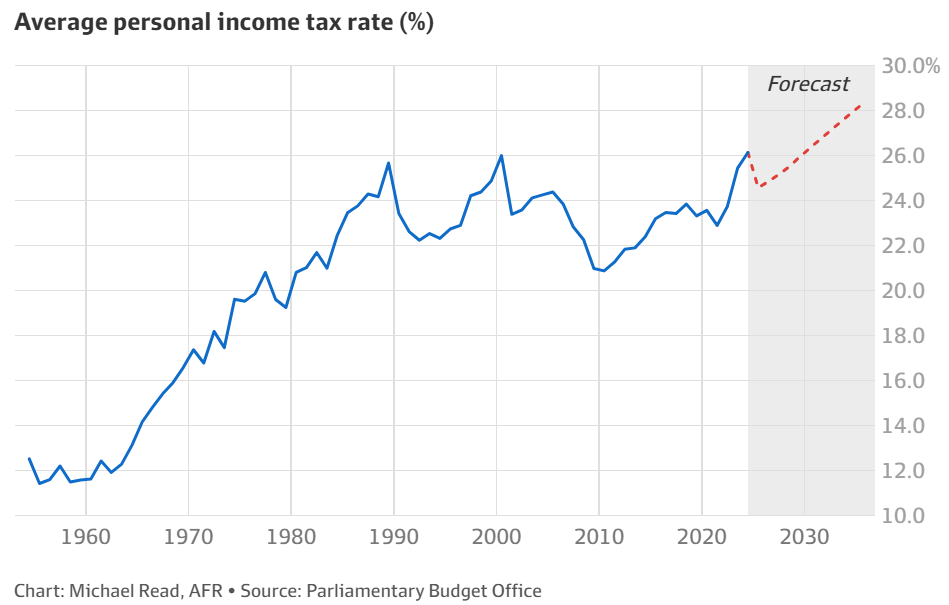Australians taxed punitively for ‘having a go’
Michael Read at The AFR posted the following chart showing that tax receipts as a share of GDP hit their highest level in 38 years at 25.9% of GDP.

The rise in tax receipts have been driven by personal and corporate tax receipts, which has more than offset by declines in tobacco and fuel excise tax receipts.
Chris Richardson, a veteran budget watcher, said the final budget decision revealed that taxes on “having a go” were the healthiest components of the tax collection.
“We are still overachieving on the big bucks in company tax and personal tax and the failures are continuing to fail”, Richardson said, pointing to the tobacco excise and the petroleum resource rent tax.
“The pressure on living standards is not mortgage payments, it’s actually tax”.

EY chief economist Cherelle Murphy argued that Australia’s tax system has become too reliant on slugging workers.
“Do we want to be slugging households with bigger tax bills when the economy is healthy and they are earning more? Most economists think lower personal income taxes, but higher GST collections, would be a more effective mix”, she said.
The problem is the federal government has allowed bracket creep to become the de facto method of funding the growth in spending because it doesn’t need to be legislated.
Because tax thresholds are fixed, wage rises that merely match CPI inflation push workers into higher tax brackets, increasing average tax rates. As a result, personal income taxes are the fastest-growing area of taxation revenue for the federal government.
Modelling released earlier this year by the Parliamentary Budget Office suggested that the average personal income tax rate will continue to rise to 28% by the mid-2030s.

As a result, increasing personal income taxes will continue to reduce real disposable income for Australia’s shrinking labour force.
This emphasises the importance of fundamental tax reform, which broadens the tax base beyond personal income taxes to more efficient sources such as resources, land, and consumption.
It is unfair and inefficient to continue raising taxes on a diminishing workforce to pay for services and infrastructure for the entire population. The burden must be shared.
